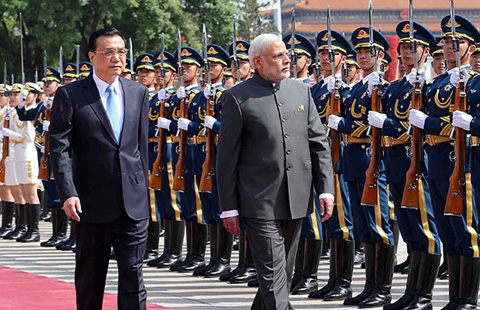Workers' interests crucial
Updated: 2015-05-15 14:04
By Hong Liang(China Daily USA)
|
||||||||

Hong Kong people don't need foreign think tanks to tell them they've become increasingly unhappy. They also know their discontent is firmly rooted in the widening wealth gap between the rich minority and the poor majority, while those in the middle are squeezed by skyhigh property prices and stagnant income.
To be sure, robust economic growth in the past few years has created many new jobs in the dominant services sector. But most of these jobs require little skill and are of low pay, offering minimal chances for advancement. Workers are further disillusioned by the government's reluctance to pass laws that can better protect their interests against the perceived avarice of business owners. A case in point is a provision in the labor law allowing an employer to charge off severance pay against a worker's pension fund balance. This provision has effectively nullified the employer's severance payment obligation under the law.
In a TV talkshow, David Wong Yau-kar, new chairman of the Mandatory Provident Fund (MPF) Schemes Authority, which oversees the management of HK$600 billion in MPF funds, said there's a reason for the so-called "MPF swap" arrangement to exist, and changing that would require a consensus of all interested parties. Wong, who hails from the business sector, much to the chagrin of labor unions, didn't elaborate. He doesn't need to because most workers understand that the arrangement in question was put in place by employers through lobbying machines operating publicly and behind the scenes.
The government has also drawn the ire of major workers' unions by making what these groups consider to be unacceptable compromises that render the proposed law to establish statutory working hours a joke. Many workers in the services sector complain they are still required to work a six-day week under the new rule which is too flexible to be of much good to them.
Against the backdrop of an increasingly tense social and political environment, the government seems to have shown its weak side to the public, when it should be demonstrating its strength as a trusted and effective arbitrator of social and economic justice. In too many cases, the government has been seen to have given in to business interests at the expense of workers.
The problem with such a perception can multiply in a severe economic down cycle that will invariably lead to massive worker layoffs in the highly labor-intensive services sector, which accounts for more than 80 percent of total output. The HSBC Purchasing Managers' Index - one of the most followed economic indicators - has clearly tracked a downward trend.
Even in this bastion of capitalism, employers must realize that allowing social tension to build up to breaking point is not good for business. It's time for them to make some compromises in favor of the working masses.
The author is a senior financial editor of China Daily Hong Kong edition.

 Premier Li holds welcoming ceremony for Indian PM Modi
Premier Li holds welcoming ceremony for Indian PM Modi
 Saved by a sunroof
Saved by a sunroof
 Unusual but true: Japan's bridge a nightmare for drivers
Unusual but true: Japan's bridge a nightmare for drivers
 A look into Shenzhen smart watch assembly line
A look into Shenzhen smart watch assembly line
 Cannes Film Festival unrolls star-studded red carpet
Cannes Film Festival unrolls star-studded red carpet
 Amazing artworks in supermarkets
Amazing artworks in supermarkets
 Top 10 venture investors in the world
Top 10 venture investors in the world
 Ten photos you don't wanna miss - May 14
Ten photos you don't wanna miss - May 14
Most Viewed
Editor's Picks

|

|

|

|

|

|
Today's Top News
Premier Li says talks with Modi 'meet expectations'
A bilateral treaty's potential praised
PBOC confirms debt-swap plan
US and Cuba to hold another round of talks
US would consider military force to defend Gulf nations: Obama
Xi to give Modi a hometown welcome
Aviation, railway top Li's agenda for Latin America
Cui rebuffs US stance on
S. China Sea
US Weekly

|

|






